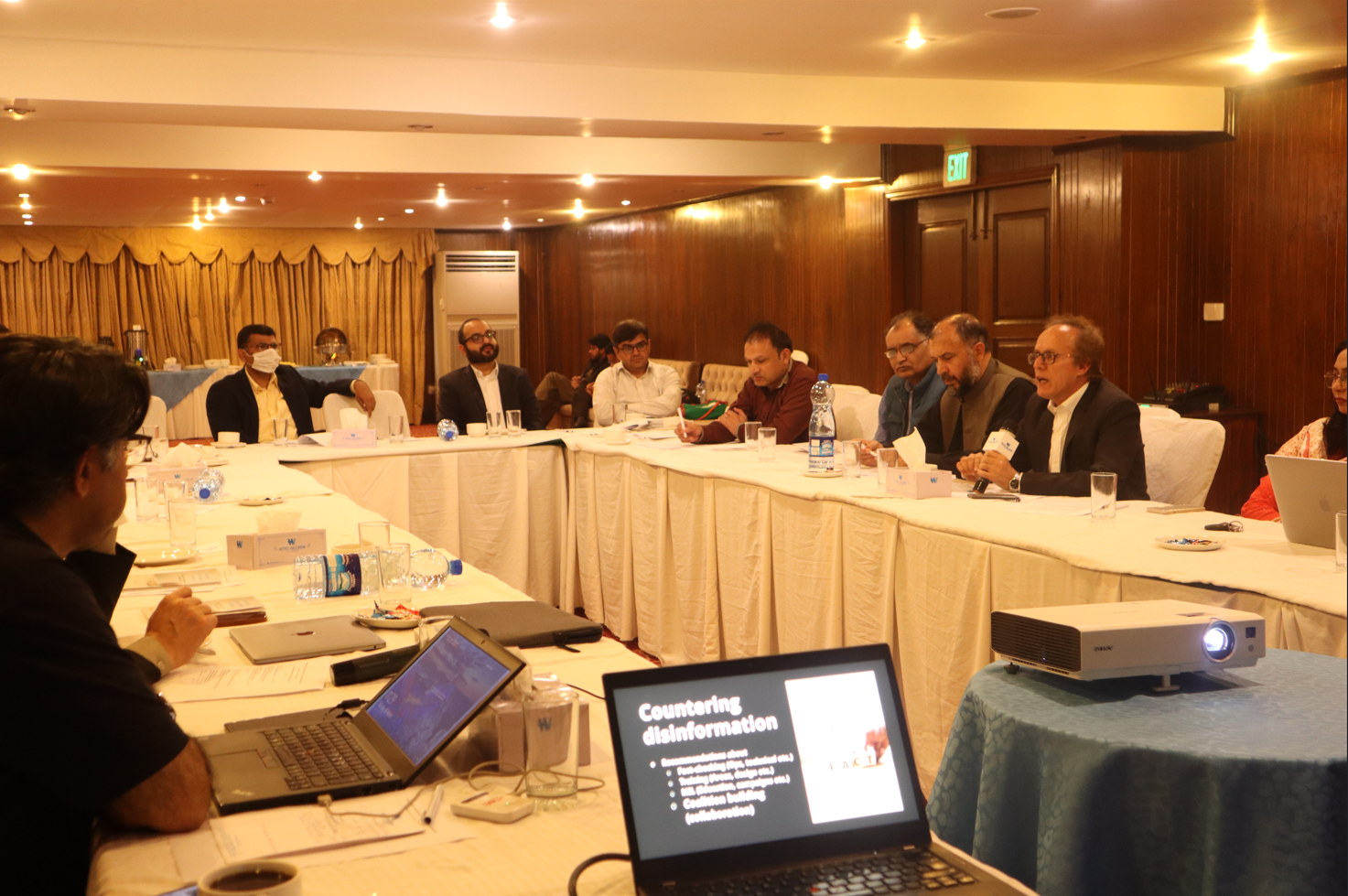Digital Media, Academia Collaborate To Launch Coalition Against Disinformation
Wraa Noor
Islamabad: The future of journalism in Pakistan is digital and emerging independent online public interest journalism platforms are vulnerable against the growing tide of disinformation, said Digital Media Alliance of Pakistan (DigiMAP) Secretary General Adnan Aamir.
“We are seeking an engagement with academia and journalism students because developing a media literacy program can be the starting point for the coalition’s work, and help key stakeholders understand how to distinguish between reliable information and false messages,” DigiMAP Adnan added.
A group of several journalism and mass communications departments of universities from across Pakistan, independent digital media platforms, journalists’ associations, media rights groups, and civil society organizations and activists have launched the ‘Coalition Against Disinformation’ (CAD) to defend public interest journalism against threats to its credibility from various sources.
The Coalition was established at a national conference titled ‘Academia and Media: Promoting Media Literacy on Countering Disinformation’which was hosted by Pakistani media rights watchdog Freedom Network and the DigiMAP in Islamabad.

The conference aimed to seek ways to combat disinformation, especially in the digital media and online domains, where the incidence of disinformation is felt the most.
A recent research study on countering disinformation suggested multi-stakeholder collaborative efforts to protect the public against the onslaught of false and fabricated information.
The study recommended that key stakeholders need to be brought together to develop a broad consensus on countering disinformation.
Such a consensus could be better articulated through a structured but non-bureaucratic platform, such as an alliance, to optimize collaboration and allow for an institutional approach to the interventions. These suggestions provide the context for the formation of the CAD.
The Coalition approved a foundation charter that aims to raise public awareness about safeguards against online disinformation and work with key stakeholders, such as academia, digital media, and civil society organizations, to support factual information.
It also plans to undertake media and information literacy (MIL) initiatives in collaboration between academia and digital media involving students, researchers, and young scholars.
The coalition will work closely with journalism schools, including faculties and students, to assist in mapping and combating disinformation on digital media and create research studies and learning resources. It will also help organise training for key stakeholder groups, including journalists and journalism students, to improve their comprehension of disinformation-related issues.

Freedom Network Executive Director Iqbal Khattak said that the coalition is an attempt to facilitate collective and cooperative solutions to the problem of online disinformation. “The huge scale and complexity of disinformation in Pakistan means that no single individual, group, or organization can solve it,” he said.
Media development Expert Adnan Rehmat said academia is the missing link in the collaborative efforts to combat disinformation. “Unfortunately, academia is not considered a part of the solution to curbing disinformation in the public imagination, whereas the involvement of academia is at the heart of creating a critical mass of influence to counter disinformation.”
Center for Excellence in Journalism-IBA Director Amber Rahim Shamsi said it will be useful for the coalition to address questions about the credibility of information sources and the amplification of false messages when it comes to countering disinformation.
A new coalition has been launched in #Pakistan to combat disinformation and safeguard public interest journalism against threats to its credibility, Iqbal Khattak, executive director of Freedom Network Pakistan, told https://t.co/HVIfT7NTGK on https://t.co/Xi7OOdRivH… pic.twitter.com/nOa7mBraJL
— Voicepk.net (@voicepkdotnet) March 21, 2023
Karachi University Head of Mass Communication Department Dr Asmat Ara stated that her department prioritizes research studies on issues related to online disinformation and would support the coalition’s efforts.

Comments are closed.